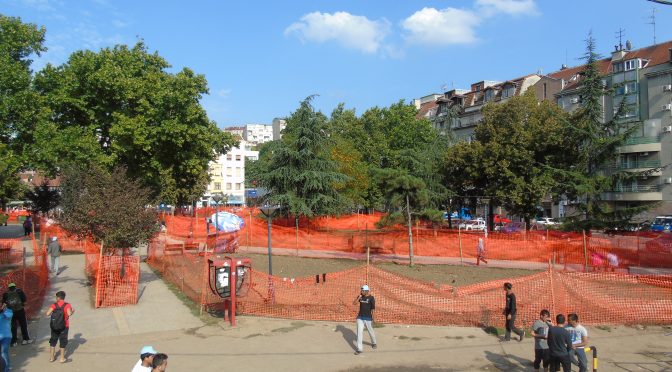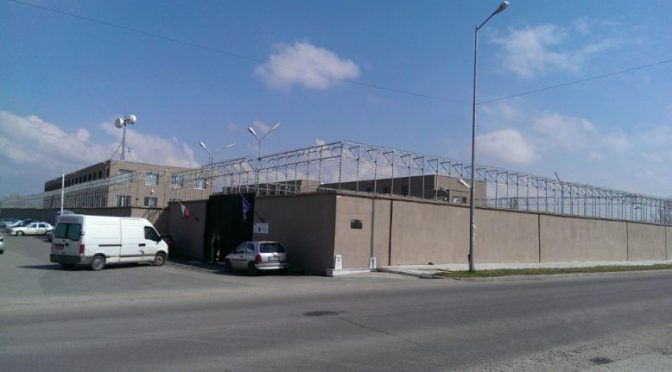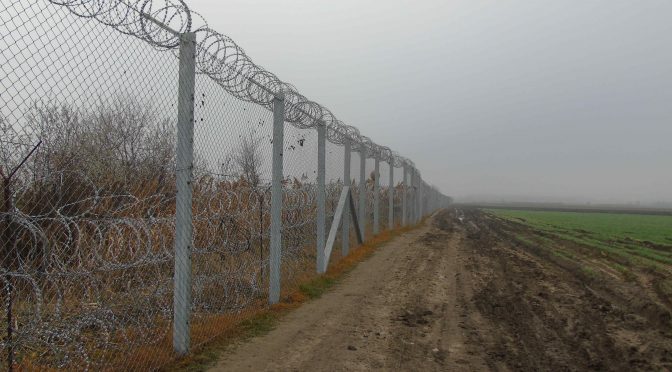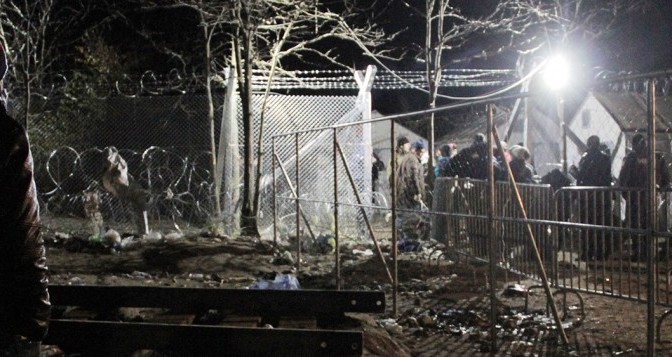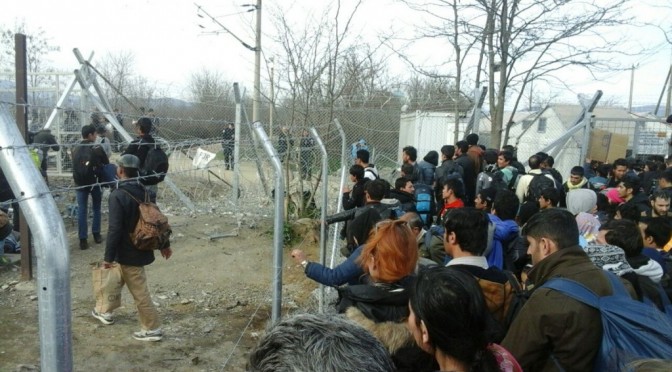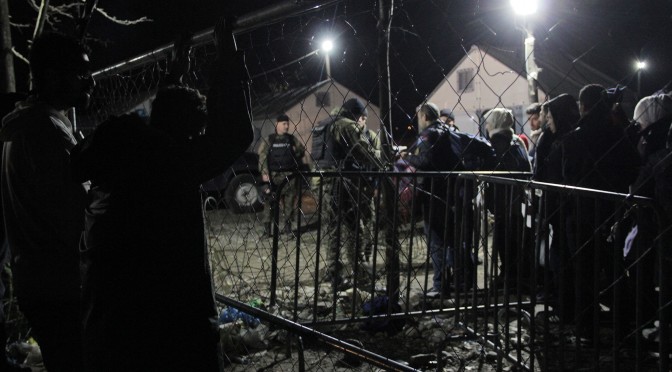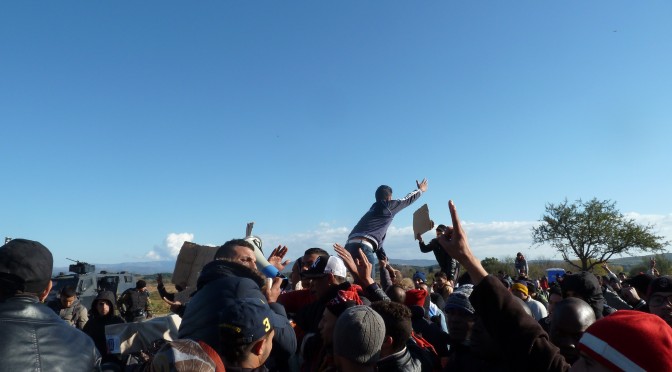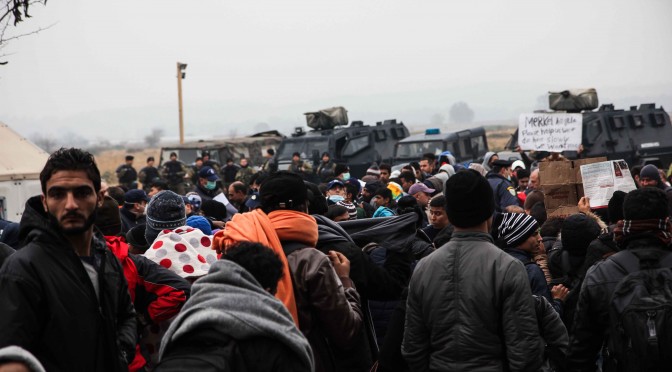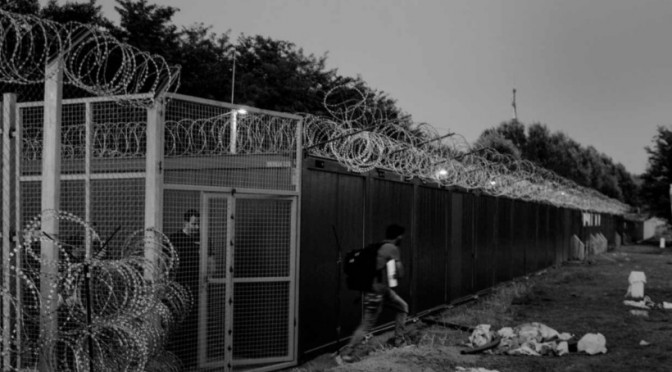Many of the 60’000 refugees currently stuck in Greece have a relative, who resides already in Germany or in other EU member states, but those still in Greece are denied the right of family reunification. One keeps them waiting or overwhelms them with bureaucratic requests that can hardly be fulfilled. Simply the initial registration in Greece, which is required for any further requests, can take months. Read the full statement here.
Alle Beiträge von ms
RECENT REPRESSION ON PEOPLE ON THE MOVE IN SERBIA
Since some weeks the Bordermonitoring Serbia Blog is online, where permanently updated information on the constantly changing situation in Serbia can be found. Below, the first report written by Bordermonitoring Serbia itself.
Since the 15th of July, the day that prime minister Aleksandar Vučić held a speech [1] about the problems Serbia is facing at the moment, the situation in Serbia for people on the move has become more and more tense. The speech was an awaited response to the legal changes made in Hungary on July 5th (“8 kilometer” push-back law [2]) which set a legal frame for the Hungarian authorities to push back thousands of people to Serbian territory.
RECENT REPRESSION ON PEOPLE ON THE MOVE IN SERBIA weiterlesen
Bericht zu Bulgarien
GÄNZLICH UNERWÜNSCHT. Entrechtung, Kriminalisierung und Inhaftierung von Flüchtlingen in Ungarn.
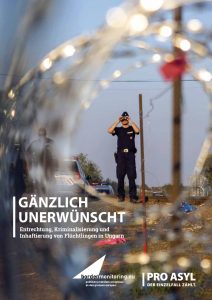
Der von bordermonitoring.eu und Pro Asyl gemeinsam veröffentlichte Bericht zeichnet im ersten Teil zunächst die Entwicklungen von Beginn des Jahres 2015 bis zum Frühjahr 2016 nach. Im zweiten Teil wird detailliert auf die beiden Gesetzespakete eingegangen, die im Sommer 2015 verabschiedet wurden und das individuelle Asylrecht in Ungarn faktisch abgeschafft haben – insbesondere durch die Erklärung Serbiens zum „sicheren Drittstaat“. Der dritte Teil geht auf die Inhaftierung von Asylsuchenden ein. Der vierte Teil beschreibt den staatlichen Umgang mit Dublin-Rückkehrern sowie zurückgeschobenen Personen mit Schutzstatus und die Bedingungen, mit denen sie in Ungarn konfrontiert sind.
- Download als PDF
- Ab 13.7.2016 kann eine Druckversion des Berichts bei Pro Asyl bestellt werden.
- Fördermitglieder von bordermonitoring.eu bekommen den Bericht automatisch und kostenfrei zugesandt.
Eviction of Idomeni
Updates from the eviction in Idomeni
Statement of Moving Europe:
Since heavy clashes between the Greek police and inhabitants of the makeshift camp of Idomeni erupted and most of the people had to experience police violence by tear gas1, the situation in Idomeni has not calmed down. During the weekend, intense rain transformed the camp into a mud place again2, and supporting structures were increasingly limited in accessing the camp. Cars have been stopped and searched, and volunteers were taken to police stations for several hours for questioning.
Verengung 2.0. auf der Balkanroute
Dieser Beitrag entstand im Rahmen des Projekts Moving Europe. Aktuell sind wir vor Ort in Belgrad, Sofia, Idomeni und Athen.
Am Sonntag, den 21. Februar 2016 schloss Mazedonien die Grenze für Geflüchtete, die aus Afghanistan stammen. Dies stellt gewissermaßen die nächste „Verengung“ der Balkanroute dar, die schon lange erwartet wurde, nachdem in Idomeni – wo sich der Grenzübergang von Griechenland nach Mazedonien befindet – bereits seit November des letzten Jahres nur noch SyrerInnen, IrakerInnen und AfghanInnen passieren durften. Bereits diese erste „Verengung“ führte zu massiven Protesten, die wir ausführlich dokumentierten.
Live Ticker Eidomeni restarted
On the 18th of November 2015, Slovenia closed its borders for refugees who are not from Syria, Afghanistan or Iraq. Just a little later, Croatia, Serbia and Macedonia also adopted this practice of segregation. There is little doubt about that this policy was pushed by the European Union as a starting point for slowing down or even stopping the flow over the Balkan route. Thousands of refugees were stuck in Eidomeni, Greece, and started to protest. The Moving Europe Bus was on the spot and reported live from the 22nd of November to the 11th of December 2015 – when the camp had been evicted. On the 5th of February 2016, we decided to restart our live-ticker as the new year has already seen several attempts from the European Union to slow down the migration movement towards Europe. Macedonia seems to become a key player in this strategy. For several weeks the Macedonian border authorities have slowed down the transit process. The predictable effect of this, given the high arrival numbers to the Greek islands, is that thousands are becoming stuck in Greece. On the 3th of February the Macedonian government announced its plans to strengthen border controls which will further reduce the speed of the transit process. In the meantime, the Greek authorities have established a new buffer zone near to Eidomeni. Since the camp at the border has already become highly overcrowded, there are fears that the violent scenes of last December in Eidomeni will be repeated. Therefore the authorities have decided that people should be kept at bay, at a gas station on the highway that is 20 km far away from the border (at Polykastro). For weeks migrants have had to stay there for hours under miserable conditions. Since the end of January the situation at the Greek border zone has escalated once more. There is only a trickle of people being let through to Macedonia and now people at the gas station have to wait for days before their buses finally leave towards the border. On the 3rd of February 2016 thousands of them decided not to wait any longer at the petrol station and started to walk towards the Macedonian border (#marchofhope 2). Further protests and tensions are to be expected. The Moving Europe Bus is on the spot since the 2nd of February and reports live from Polykastro and Eidomeni.
Restrictions and segregation on the Balkanroute: Fences, detention and push-backs
by Moving Europe. First published here. Bordermonitoring.eu is part of the project.
The long summer of migration has turned into winter. During the first half of 2015, migratory movements opened new ways across the borders of Europe, from the Turkish coasts over the Balkans to Northern Europe. Migration through the Balkans is not a new phenomenon: people denied access to legal routes across borders have long forged their own paths through the region. However, the so-called ‚humanitarian corridor‘, which formed in the interplay of the new paths forged by autonomous movements and governmental responses, began channelling refugees arriving from Turkey on the Greek islands on a state-controlled route over the Balkans to Northern Europe. The paradoxical ‘humanitarian corridor’ developed into a temporary passageway of free movement on the one hand, which has to be seen as a victory, but on the other hand the route quickly became heavily state and police controlled.
Restrictions and segregation on the Balkanroute: Fences, detention and push-backs weiterlesen
Live Ticker Eidomeni
On Wednesday, 18th of November, Slovenia closed its borders for refugees who are not from Syria, Afghanistan or Iraq. Just a little later, Croatia, Serbia and Macedonia adopted this practice of segregation. There is little doubt, that this policy was pushed by the European Union as a starting point for slowing down or even stopping the flow over the Balkanroute. There is information, that three camps in Athens are in preparation (for refugees, who are not from the mentioned countries). Furthermore, there are indications, that Afghans should be segregated as well and that the Greek-Macedonian border will be closed completely for seven days soon. But all this is not officially confirmed yet. However, thousands of refugees are stuck in Eidomeni at the moment and started to protest. The Moving Europe Bus is at the spot and reports live.
We will continue to report live here
Dublins Tod
Ein Foto-Essay von Kaveh Rostamkhani mit einem Beitrag von Marc Speer (4.12.2015)
Der „lange Sommer der Migration“ auf dem Balkan ist zugleich Resultat und treibende Kraft hinter etlichen Brüchen. Was passiert, wenn staatliche Kontrollbestrebungen und migrantische Mobilitätsstrategien zusammentreffen und etwas Neues entstehen lassen.
